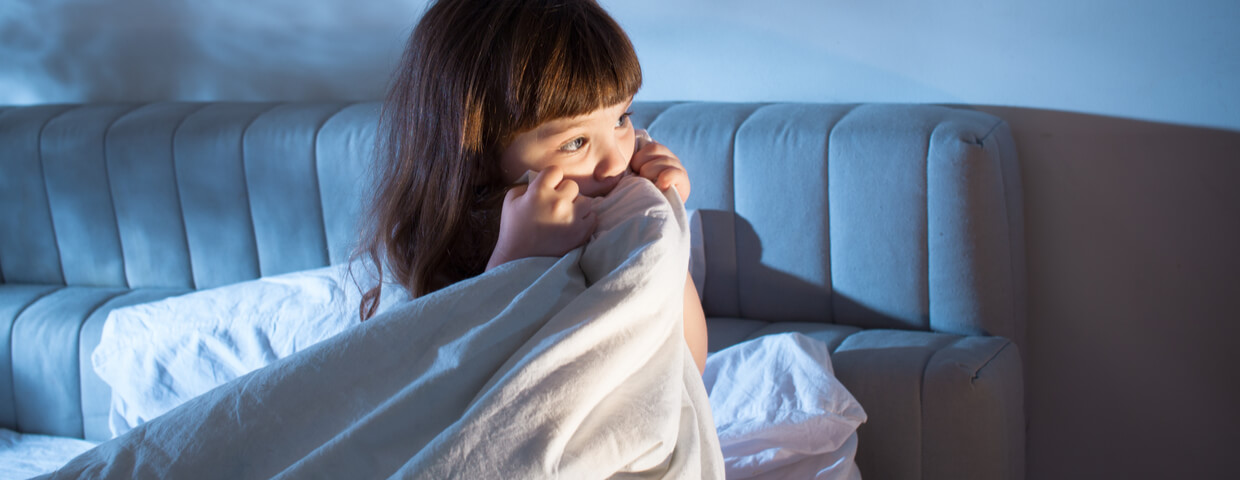Many adults suffer from insomnia, sleep apnea, and other sleep disorders, and you already know the impact that not getting enough sleep can have on your quality of life. Adults are often under the impression that it’s easier for our children to fall asleep and stay asleep, but the reality is that children can suffer from sleep disorders, too.
Children may have different daily responsibilities, but when good sleep is elusive, a good day at school or even at play can be difficult.
Common Sleep Disorders in Children
So what are some common sleep disorders in children, and what kind of an impact does poor sleep have on children?
Excessive Sleepiness
Excessive Daytime Sleepiness (EDS) is experienced when even after 10 hours of sleep or naps a child is still very drowsy. Their sleepiness interferes with school schedules, their mood, and their sense of well-being. While EDS is more common in adolescent-age children, only a doctor can properly diagnose this condition and possible causes.
Insomnia
Whether it’s falling asleep, staying asleep, or waking up too early, insomnia can be just a miserable for children as it is for adults. Insomnia can be caused by many things, including caffeine, anxiety, medical conditions, environmental issues, and more. It can be short-lived, or chronic, be experienced in cycles, resolve inexplicably on its own, or require treatment.
Sleep Apnea
Sleep Apnea is a condition where a child’s airway is obstructed during sleep. This causes breathing and sleep to be disrupted, meaning poor quality of sleep. Even if the child appears to be getting enough hours of sleep, the poor quality prevents the full benefits of a solid night’s rest. While sleep apnea in children can be caused by many factors, including enlarged tonsils, a doctor will want to assess your child to prevent this condition from interfering with their development.
Movement Disorders
Conditions like Restless Legs Syndrome, Periodic Limb Movement Disorder, and Rhythmic Movement Disorder can interfere with a child’s ability to fall asleep and stay asleep. When these conditions are mild or transient they may not interfere enough to have an impact on your child, but if they are repeatedly woken up by their symptoms they can begin to suffer from inadequate sleep.
Nightmares, Night terrors, Sleepwalking
Nightmares can be incredibly disruptive to sleep, especially if they are frequent. But night terrors and sleepwalking may be even more upsetting to you as a parent. While nightmares are unsettling, a sleepwalking child can wander off, trip over things, or fall. Guide sleepwalking children back to bed, and make sure that windows and doors are secure, as well as sharp or loose objects too. If your child’s nightmares, night terrors, or sleepwalking are interfering with their sleep or your own, make sure to talk to their doctor about your concerns.
Bedwetting
Bedwetting can cause your child a lot of anxiety beyond the disruption to their sleep schedule. It’s important to be supportive to your child if they are experiencing bedwetting, as the humiliation can be very destructive to their sense of well being, self-esteem and cause further sleep problems. You may want to talk to your child’s pediatrician to ensure there are not health issues that could be causing the bedwetting.
How Sleep Disorders Impact our Kids
Sleep disorders, like those mentioned above, can have a big impact on your child that will manifest in their mood, academic performance, and development.
Children who suffer from poor sleep are more likely to exhibit behavioral issues, experience immune system suppression, struggle with peer relationships, and may even be at higher risk of becoming obese or having a substance abuse issue later in life.
That’s why it’s so important to raise any concerns that you have about your child’s sleep to their doctor so that any treatments or interventions that are needed can be implemented sooner rather than later and get you BOTH back to sleep.
Because sleep is so important, we believe that every child deserves a safe place to lay their head at night. Did you know that you can help?
Learn more about how you can help children in your area to sleep better, tonight.

